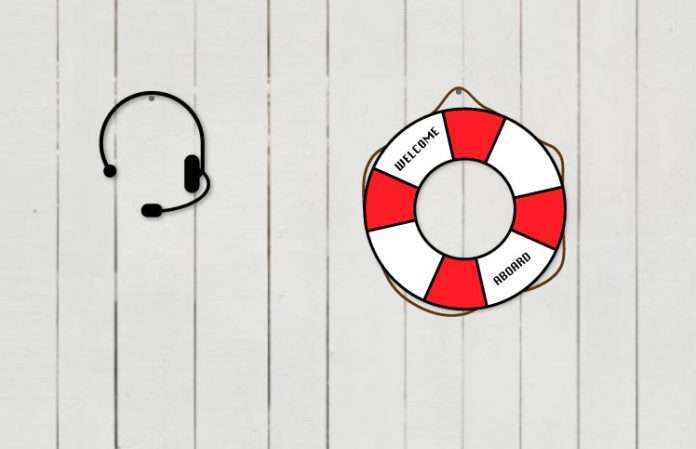
In my last post, I offered five tips to reduce your new-hires’ training jitters, while increasing their knowledge retention and engagement. The following are five additional ideas to ensure that new agents can make a successful transition from the training classroom to the contact center floor.
1. Give new-hires a sense of community within the classroom by having them work in small groups.
Contact center agents are typically social people. They like talking with and meeting new people. Have them work together in pairs, trios and small groups of three to four people. They can work together on training exercises, role-plays and simulations. This will not only increase their level of knowledge retention, it will also increase the energy level in the room. Make sure that you use e-learning in moderate amounts. E-learning is a great way to learn data. It is also self-paced, so new-hires can move through modules at their own comfort level. The drawback is e-learning does not create the positive energy level or sense of community that interactive group exercises create. So be sure to combine group work with e-learning to achieve the best balance between independent study and teamwork.
2. Put your new-hires on a mission.
To increase employee engagement, show your new-hires how their work contributes to a greater mission in life. For instance, one employee of a medical supply company believes that all he does is ship boxes to people at home. This employee fails to see how he contributes to the greater good. He just sees his work as a boring job. On the other hand, one of his coworkers sees her role as delivering badly needed medicine to people who might die if they do not get it on time. This person has a sense of mission. She has connected to a greater good. She feels engaged and dedicated to her job. As a result, she tries harder, stays longer and contributes more. Give your employees a sense of mission by illustrating how their work helps people. This will increase employee engagement and reduce employee turnover.
3. Give new-hires a perspective for handling irate callers.
When I was an agent, guess how many of my phone calls were from happy customers wanting to thank their phone company for great service? Three. Three positive calls in the four years I spent online. That is less than one positive call per year. The other 50,000 calls I took were from people who wanted to change services, complain about their bill or cancel their service.
I train agents on how to handle irate callers. I am continually amazed at how many of them seem shocked that most of their calls are from complaining customers. Prepare your new-hires for this by asking the class, “How many of you have ever called a company because you felt happy about their service?” Only a few hands will go up. Ask, “How many of you have ever called a company because something went wrong?” Normally, every hand will go up. Then say, “That’s why people call. They have a problem and need your help.”
Another way to add perspective is to say something along the lines of, “Only 10% of our customers ever call in, but they make up 100% of the calls you take.” Give them that perspective so they know what to expect.
4. Let them know how they’re doing.
People want to know how well they are doing. This is especially true for the two-week to two-month-long training sessions common to contact centers. Let your new-hires know how they are doing by providing weekly updates on their test results, level of participation and schedule adherence during training. You can also give out weekly awards during the course for things like, “Highest Quiz Score” or “Top Contributor at Asking Questions.”
5. Celebrate successes.
Plan a graduation party. Even a simple pizza lunch will help boost spirits. Invite your contact center’s management team to participate. Have a graduation cake for dessert. Give out graduation certificates. Take a team graduation photo. Make your new-hires feel good about graduating from training.



